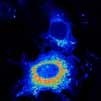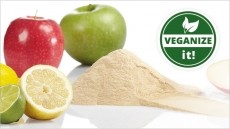Food preservative may have anti-cancer properties: Study

The study – published in Cancer Medicine – investigated the potential use of antimicrobial peptides (bacteriocins) as anti-tumour agents finding that nisin, a commonly used food preservative, has anti-tumour potential.
The US-based researchers revealed that the anti-microbial preservative slows cell growth (proliferation) and can cause the programmed death of cancerous cells by activating a protein called CHAC1 (a protein known to influence cell death).
Additionally, the findings suggest that nisin slows or stops tumour growth by disturbing the cell cycle in ‘bad’ cells but not ‘good’ cells; thus nisin stops cancer cell proliferation but doesn't hurt good cells.
"The use of small antibacterial agents, like nisin, to treat cancer is a new approach that holds great promise,” said Professor Yvonne Kapila from the University of Michigan, who led the study.
“Nisin is a perfect example of this potential because it has been used safely in humans for many years, and now the laboratory studies support its anti-tumor potential," she said.
Anti-cancer potential
The team explained that antibacterial agents such as nisin alter the properties in bacterial cells to render them harmless.
However, it is only recently that scientists began looking at this sort of antimicrobial agents to see whether they also altered the properties of other types of cells – such as cancer cells or cells in tumours.
“This is the first time that an antibacterial food preservative agent has been shown to effectively reduce and prevent tumorigenic properties in vitro and in vivo,” say the researchers
They add that because the preservative is already safely consumed by humans and is approved by the US-FDA and WHO for human consumption, the compound lends itself to use as a natural therapeutic agent.
However, they add that determining the optimal levels of intake for such therapeutic effects in humans “is the next critical step in its validation process.”
“These data support the concept that nisin decreases HNSCC [head and neck squamous cell carcinoma] tumorigenesis in vitro and in vivo by inducing increased cell apoptosis and decreased cell proliferation; effects that are mediated by activation of CHAC1, increased calcium influxes, and induction of cell cycle arrest.”
Source: Cancer Medicine
Published online ahead of print, doi: 10.1002/cam4.35
“Nisin, an apoptogenic bacteriocin and food preservative, attenuates HNSCC tumorigenesis via CHAC1”
Authors: Nam E. Joo, Kathryn Ritchie, Pachiyappan Kamarajan, Di Miao, Yvonne L. Kapila





















